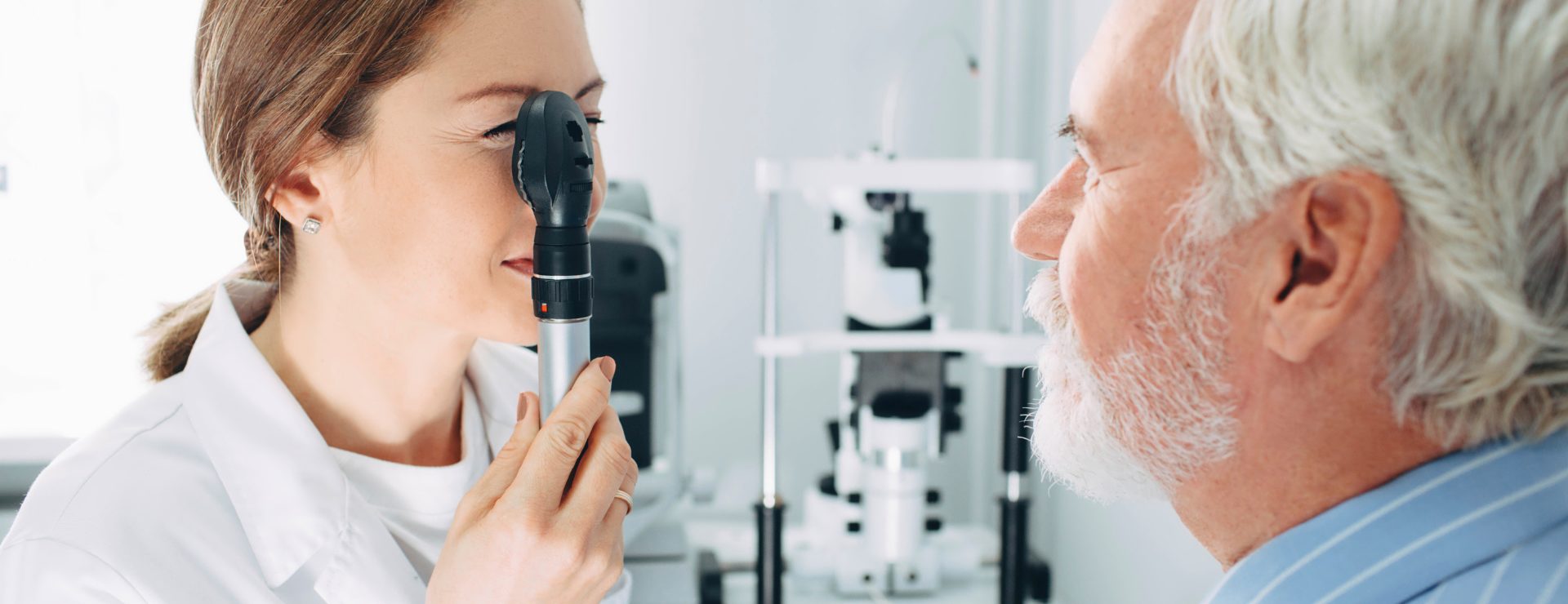Managing Cataracts: Symptoms and Treatment
Blog Health News 9th October 2024 Enquiries & appointments
Cataracts are a common eye condition, especially as we age, and can impact your vision and overall quality of life. Though many people associate cataracts with getting older, they can develop for various reasons.
What are cataracts?
A cataract is formed in your eye when the protein in your natural lens clumps together, making your vision become cloudy. This lens helps focus light onto the retina at the back of your eye, allowing you to see clearly. A cataract clouds this lens, making vision blurred, often described as looking through a dirty windscreen. This can get worse over time, causing daily tasks to become difficult and overall quality of life to reduce.
Cataracts will typically develop in both eyes but may progress at different rates. It’s important to monitor any changes in your vision and consult with a specialist as soon as you can.
What causes cataracts?
Cataracts are most commonly caused by ageing, with the majority of people developing cataracts by the time they reach their 70s or 80s. This is because as we age the proteins in the lens of our eyes can clump together, causing those cloudy lumps.
Other factors can also increase your risk of developing cataracts:
- Diabetes: High blood sugar levels can speed up cataract formation, meaning people with diabetes are at a greater risk of developing cataracts.
- Sun exposure: Prolonged exposure to UV light can damage the proteins in the lens, increasing the risk of cataracts. Wearing UV-protective glasses can help reduce this risk.
- Smoking: The chemicals in cigarettes can damage the delicate tissues in the eye, speeding up cataract formation.
- Medications: Long-term use of corticosteroids medications has been linked with cataracts.
- Congenital cataracts: Some babies are born with cataracts, caused by the lens not developing properly or faulty genes.
What are the symptoms of cataracts?
Cataracts develop slowly, so the early symptoms can be easily overlooked. The most common signs include:
- Blurry vision: As though you’re looking through a frosted window.
- Sensitivity: Bright lights may cause discomfort, and you may experience glare around lights, especially at night.
- Difficulty seeing in the dark: Cataracts can make it harder to see in low light, making driving at night dangerous.
- Fading of colours: Colours may appear duller than before, and whites may take on a yellowish tint.
- Double vision: Cataracts can cause double vision in a single eye.
As the cataract develops overtime, symptoms can worsen, making it difficult to carry out normal tasks. If you notice significant changes in your vision, it’s important you consult with a specialist.
What treatment options are available for cataracts?
In the early stages, symptoms can be managed by making simple changes, such as improving lighting in your home or updating your glasses prescription. However, cataracts will continue to progress over time, and once they start significantly affecting your daily life, surgery is the only effective treatment.
Cataract surgery
During cataract surgery, the cloudy lens is removed and replaced with an artificial lens . The surgery is performed under local anaesthetic, and patients can usually return home the same day. The artificial lens is designed to last a lifetime and has a high success rate. In many cases, patients may no longer need glasses for distance vision.
Recovery and aftercare
Cataract surgery recovery is typically quick, with most people noticing an improvement in their vision within 2 to 5 days. It’s recommended to avoid strenuous activity, direct sunlight and dust in the following weeks after your surgery. It’s important to follow your doctor’s advice and attend regular follow-up appointments to help monitor your progress.
When should you seek treatment?
It’s important not to wait until your vision is severely impaired, as early intervention can improve outcomes and speed up recovery. If your vision is starting to affect your ability to carry out daily tasks such as reading, driving, or recognising faces, it’s time to consider your treatment options.
Cataracts are a natural part of ageing, but with modern treatments, you don’t have to live with compromised vision. If you’re experiencing symptoms or have concerns about your eye health, contact KIMS Hospital to discuss the best treatment options for you. Our expert ophthalmology team is here to guide you through the process, from diagnosis to recovery.
For more information about cataract treatment at KIMS Hospital, get in touch with our ophthalmology team today.
Article produced by
KIMS Hospital & Sevenoaks Medical Centre